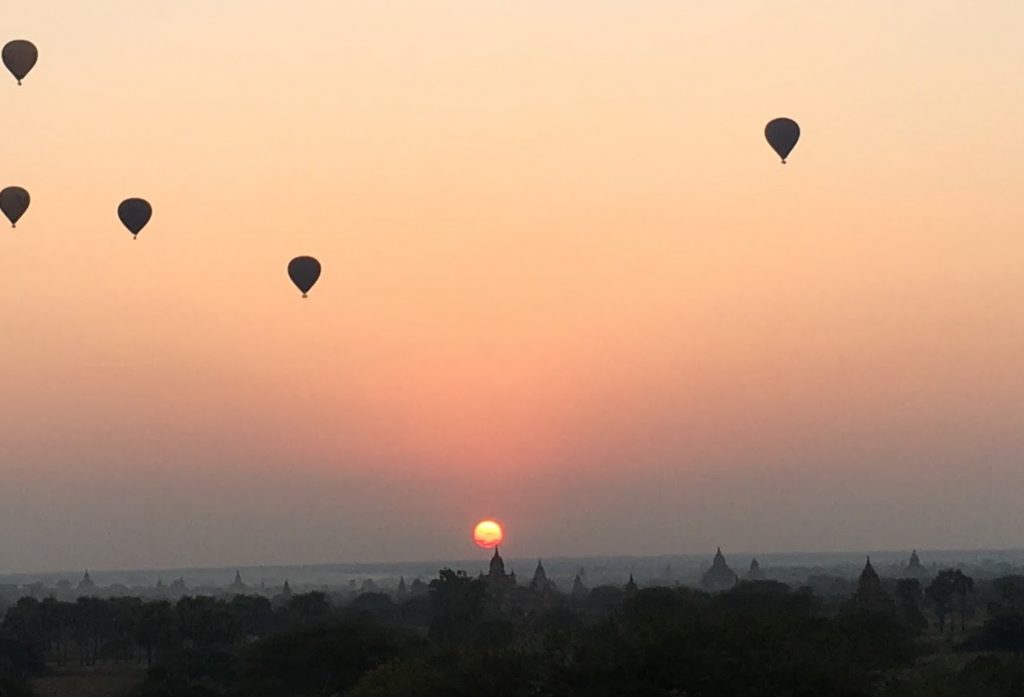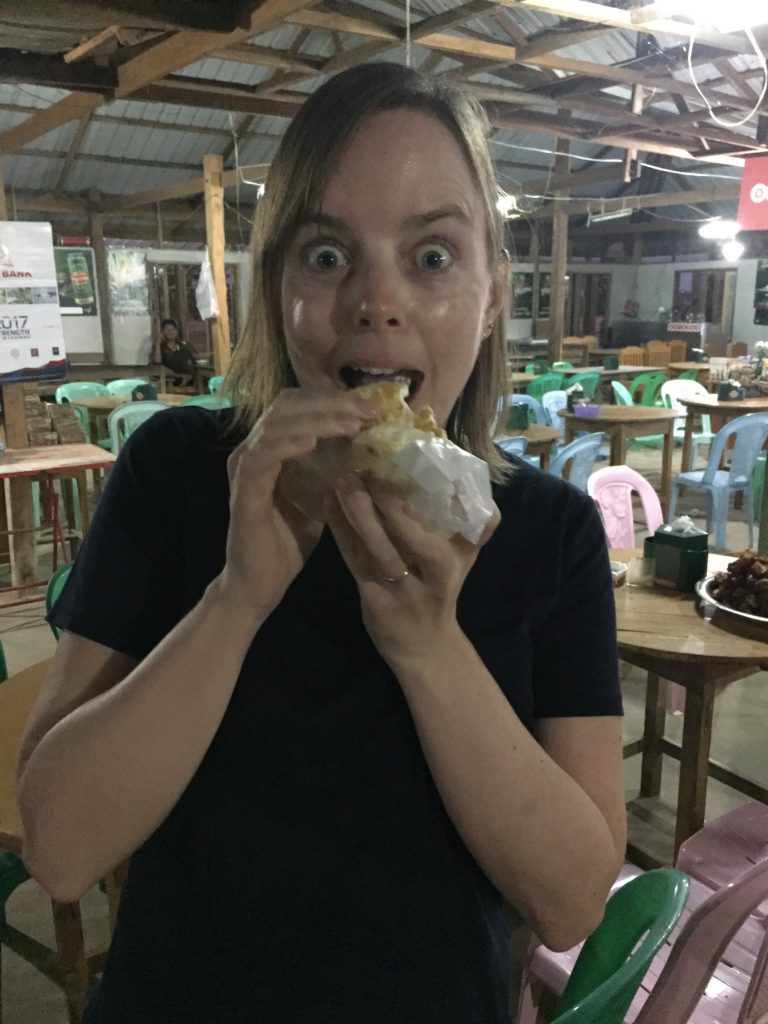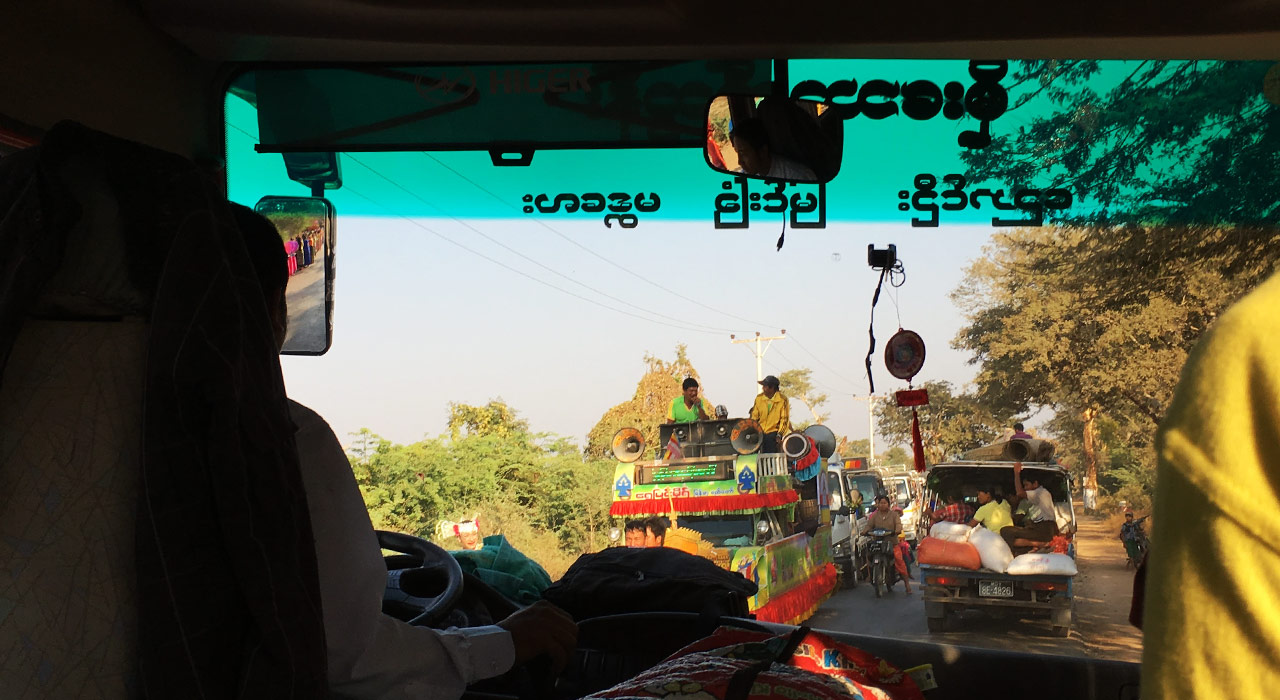Cultural Immersion: How Learning 20 Basic Phrases Transformed My Travel Experience
For ages I’ve recognised, at least in theory, that learning even just a small handful sentences in a new language can take you a long way on a holiday, and give you a unique experience of cultural immersion.
I really enjoyed reading about Fluent in 3 Months founder Benny Lewis’s experience getting by with limited Turkish at a barber shop in Istanbul.
But it wasn’t until a recent trip to Burma with my friend that I got to experience firsthand how powerful this can be.
The 20 Phrases I Learned to Prepare for My Trip
Before the trip, I took only two hours of Burmese lessons with Cherry, an excellent Burmese tutor on italki. She taught me the following basic phrases:
- Hello (with the polite particles)
- Elder/younger sister, elder/younger brother (polite way to address people)
- How are you? I’m fine
- Excuse me
- Sorry
- Thank you (formal and informal)
- You’re welcome
- Beautiful
- Good
- My name is Holly. This is [my friend] Ashley.
- Goodbye (formal and informal)
- Can you speak English? Yes, I can speak it/No, I can’t.
- Do you understand? Yes, I understand/No, I don’t understand.
- Give me this please [pointing to a menu item]
- How much does it cost?
- Numbers from 1 to 99.
- Vegetarian-related phrases: I’m vegetarian. I don’t eat meat or fish. Is it vegetarian? Please make it vegetarian. Could you give me this but vegetarian?
I practised pronunciation with my teacher over and over during my two lessons. Once I was sure I was saying the words correctly, I made up a transliteration system to help me remember the pronunciation – reading Burmese was definitely not part of this micro mission! – and I put all the words onto flash cards on my phone. I practised the cards on the long flight to Asia.
Arriving in Burma
When my friend Ashley and I arrived in Mandalay, the first thing we did was hop on the bus for a five-hour ride to Bagan (pronounced “b’gan). We arrived in Bagan just in time to get to bed and wake up at 5:30 a.m. to watch the famous sunrise over the old town. And what a beautiful sunrise it was!

We were short on time, only having about 52 hours in Burma, so after a morning spent touring the temples of old Bagan, it was back on the bus for the five-hour trip back to Mandalay.
Culturally Immersed: Using My New Phrases
As it would turn out, that bus trip ended up being the most memorable part of my visit.
The bus stopped for 20 minutes at a small outdoor rest stop in a really rural area. We had been in Burma 24 hours by this point but I had barely had a chance to use the Burmese I had learned, except for “hello”, “goodbye”, “thank you” and “how much?” at restaurants and such. But at the rest stop, when I got out to stretch my legs, I saw a lady selling some grilled meat near our bus. I wanted to take a picture but I didn’t want to be rude by doing it without asking. But I hadn’t learned the phrase “May I take a photo?” I thought back to my phrase list, and I remembered the verb “can”, and the yes/no question particle, from the phrase “Can you speak English?” So I mustered up my courage, approached the lady, and said in Burmese, “Excuse me, elder sister”, then pointed to my camera and asked “Can I?” She nodded. Success!
“Kaung dè (good)!!!”
I took a picture and said “thank you”, then gestured to her tray of meat said apologetically, “I'm vegetarian.” Another lady selling some flat cakes heard me. She came over and pointed to her tray, saying “Vegetarian!” So I bought one and tried it, and said “Good!” in Burmese.

She pointed at the cakes again and said another word that I didn't know, so I said “Sorry, I don't understand”. She then said, “Name,” followed by the word again. I recognised the word “name” from the phrase “My name is Holly” that I had already learned. “Ohhh, name!” I replied. She was telling me the name of the food! (Side note: I wish I remember what the name was. It was yummy, and googling the description of the food has been unsuccessful.)
Getting Taught New Vocabulary
I was curious about what kind of meat the first lady was selling. I hadn’t learned how to say “What is that?” but I had just been reminded that I knew the Burmese word for “name”, so I just pointed to her tray and said “Name?” She told me what kind of meat it was, but of course I didn't understand the word. An English-speaking Burmese man was passing by and told me it was rabbit. I wanted to hear the name again in Burmese. I knew how to say “in [language]” since I had learned the phase “Can you speak [in] English?” So I said, “In Burmese…?” and the lady repeated the word for rabbit (which of course I already forget! But that’s slightly easier to look up.)
Another lady heard us talking and came over, so now there were three ladies standing around me. I was gaining an audience with my clumsy attempts to speak Burmese. It encouraged me to keep going. I said, “My name is Holly,” then looked questioningly at the lady selling the rabbit (because I didn't know how to ask “What is your name?”). She said her name, as did the other two women.
Learning How to Tell Jokes in Burmese
I was running out of things to say because I had learned so little. But I suddenly realised I could say my age. I couldn’t say “years old”, but I did know the numbers up to 99, so I pointed to myself and said “Thirty-five.” They understood. The lady selling the rabbit pointed to herself and said “Fifty-five.” She really didn’t look that age, so I replied “Fifty-five! Beautiful!” and she smiled. My Burmese teacher taught me that smiling is a common substitute for words in Burma. People often smile to say hello or thank you.
The lady then pointed to the woman standing closest to me, who looked about my age, and said “Sixty!” with a perfect deadpan expression, before she broke it with a laugh. There’s no way the woman next to me was sixty. The lady selling the rabbit was teasing her! And she wasn’t done yet. She then pointed to the other girl, who couldn't have been older than twenty, and said “Eighty!”, again with that mock-serious expression, and we all shared a hearty laugh at that. I wished that there had been a child around so I could have pointed and said, “Ninety??” to keep the joke going!
Our 20-minute pit stop was almost over, but I still had a couple minutes left. The lady selling the vegetarian cakes said “[something something] three.” I couldn’t tell what she was referring to, so I replied, “I’m sorry, I don’t understand.” She mimed rocking a baby, and I knew she was telling me she had three kids. “Oh! I understand!” I replied.
I didn’t get a chance to tell her how many kids I have (and I hadn’t learned the word for “zero” anyway 🙂 ), because suddenly it was time to get back on the bus. I had just enough time to say “Thank you, goodbye!” and wave at my new friends before boarding the bus. We kept waving to each other through the window as the bus pulled away.
A Magical Experience
It’s hard to express what a magical experience it was to have this short conversation with such a friendly group of Burmese women. I kept thinking back to it with a smile over the next several days as Ashley and I made our way back to Thailand for the rest of our trip. I ended up using nearly every one of the few phrases I had learned, and it improved the trip more than I ever would’ve expected.
After that experience, I made a promise to myself to never travel to another country again without learning at least a few sentences in the local language. I want to make the most out of my trips, and that doesn’t just mean seeing the sights. It also (or rather, especially) means interacting and connecting with the people who live there, even if only briefly. In other words, real cultural immersion.
I absolutely love hearing about similar experiences of unexpected connections during people’s travels. Have you ever scraped by in a conversation with just a few words and phrases? Please tell me about it in the comments!
Kyay zuu! (Thanks!)
Photo credit: Ashley Meredith.



Social